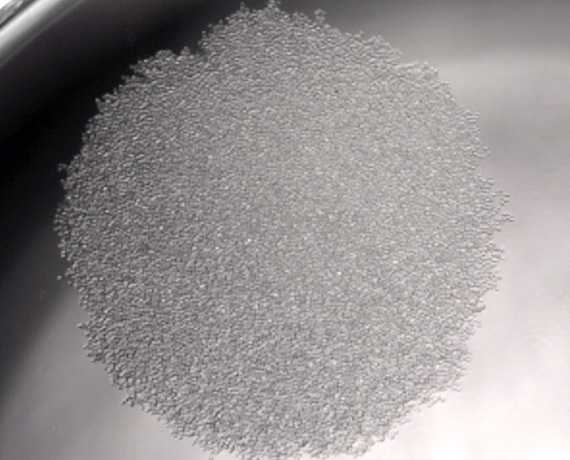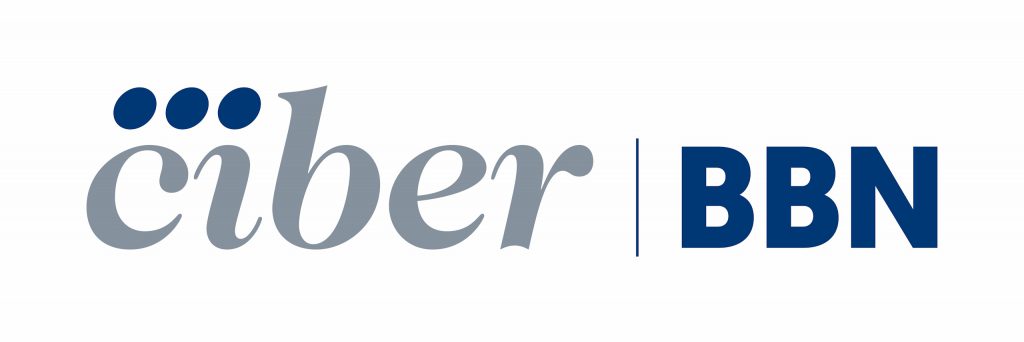
U2. Custom Antibody Service (CAbS)
- Scientific Director: Prof. Pilar Marco pilar.marco@cid.csic.es
- Scientific Coordinator: Dr. Nuria Pascual npdqob@cid.csic.es
- Entities: Institute of Avanced Chemistry of Catalonia (IQAC) & Consejo Superior de Investigaciones Científicas (CSIC)
- Address: Jordi Girona, 18-26, 088034, Barcelona, Spain
- Phone: +34 934 006 100
- Web: IQAC- CSIC
Order request
Description
The facility is located in the Institute of Advanced Chemistry of Catalonia (IQAC-CSIC; Barcelona). It is equipped with a laboratory for the development and production of monoclonal antibodies. The laboratory is fully equipped for obtaining, selecting and storing monoclonal antibody producing hybridomas. In addition, the facility has infrastructure for the production of polyclonal antibodies, as well as laboratories for the synthesis of bioconjugates, haptens, the purification of antibodies and the performance of immunoassays. In addition to the above mentioned equipment, the IQAC-CSIC provides animal husbandry facilities and a unit for the synthesis of organic molecules.
The equipment consists in an inverted phase contrast microscope with a camera, two Class II laminar flow biological safety cabinets, two CO2 incubators, a bioreactor for hybridoma culture, and tangential filtration unit for purification of the antibodies produced in the culture. Among the items of available equipment it should be highlighted a spotter for selection of high antibody producing cell lines and an automated ELISA microplate washer an ELISA reader, two AKTA Prime Liquid chromatography systems for antibody purification, plus standard equipment (centrifuges, fridges, liquid nitrogen containers, autoclave, baths, and vacuum equipment) and all the necessary routine laboratory apparatus. Cabs also has access to a fully equipped chemistry laboratory for the synthesis of haptens and immunoreagents.
The NANBIOSIS Unit 2 works under the ISO9001 certification for standard quality control system QUALITY POLICY
Services
FOR THOSE SERVICES IDENTIFIED AS OUTSTANDING, AT LEAST 20% OF THEIR CAPACITY IS OPEN UNDER COMPETITIVE ACCESS. SEE ANNEX 1 OF ACCESS PROTOCOL FOR DETAILS ON % OF OPENNESS FOR EACH SERVICE
U2. Services & Rates
Other projects
| Ref |
Title |
Funding Organism |
Unit Role |
| SAF2015-67476-R |
Immunochemical Strategies of Diagnosis and Therapy based on Quorum Sensing (ImmunoQS) |
Ministerio de Economía y Competitividad |
Participant |
| PIE1400061 |
Molecular links between diabetes and neurodegenerative diseases |
ISCIII |
Oberver |
| 2014SGR1484 |
Consolidated Research Group |
Generalitat de Catalunya |
Participant |
| FP7-614168 |
Real time monitoring of SEA contaminants by an autonomous Lab-on-a-Chip biosensor (SEA-on-a-CHIP) |
European Commission |
Oberver |
| CI16-00031 Caixa Impulse |
A new approach for the detection of Pseudomonas aeruginosa |
CaixaBank |
Participant |
| MSCA-ITN2015-675412 |
New Diagnostics for Infectious Diseases |
European Commission |
Participant |
| TECCTP15-1-0011 |
Ajuda acreditació Tecnio del grup Nb4D |
ACCIÓ: Generalitat de Catalunya |
Others |
Publications
2016
- Roncador G., Engel P., Maestre L., Anderson A.P., Cordell J.L., Cragg M.S. et al. The European antibody network’s practical guide to finding and validating suitable antibodies for research. mAbs. 2016;8(1):27-36.
- Pastells C., Pascual N., Sanchez-Baeza F., Marco M.-P.. Immunochemical Determination of Pyocyanin and 1-Hydroxyphenazine as Potential Biomarkers of Pseudomonas aeruginosa Infections. Analytical Chemistry. 2016;88(3):1631-1638.
- Salvador J.-P., Marco M.-P.. Amperometric Biosensor for Continuous Monitoring Irgarol 1051 in Sea Water. Electroanalysis. 2016;28(8):1833-1838.
News U2
05 Aug
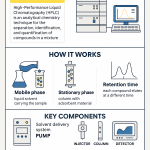
Discover what HPLC is, how it works, and why it’s essential in analytical chemistry and biotechnology. Learn about real applications like LC/MSD iQ integration for antibody purification. What is HPLC? Understanding High-Performance Liquid Chromatography High-Performance Liquid Chromatography (HPLC) is one of the most powerful analytical techniques used in chemistry, biochemistry, and biotechnology. From pharmaceutical quality control to the purification of cutting-edge biotechnological products, HPLC provides high-resolution separation and precise quantification of complex mixtures. Its precision, sensitivity, and versatility have made it indispensable in both research and industrial settings. This article explores how HPLC works, its key components, real-world applications —including[...]
30 Jul
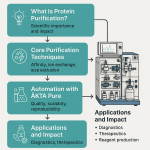
Explore modern protein purification methods with a special focus on automated systems like ÄKTA Pure. Learn how advanced chromatography workflows are transforming antibody production, diagnostics, and biotech applications. What is protein purification and why does it matter? Protein purification is a fundamental process in biotechnology, biomedical research, and pharmaceutical production. It involves isolating a specific protein of interest from a complex mixture, such as a cell lysate, while preserving its structure and function. This process is critical because the quality, purity, and yield of proteins directly impact downstream applications such as drug development, diagnostic assays, and therapeutic research. In t[...]
21 May
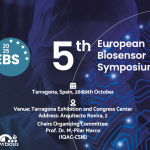
NANBIOSIS will join EBS2025 in Tarragona as organizer and sponsor, with a stand to showcase its services in biosensors and nanobiomedicine. Tarragona, october 2025. NANBIOSIS will be actively participating in the European Biosensors Symposium (EBS) 2025, which will take place from 26th to 29th October in Tarragona, Spain. The event, which brings together leading researchers and innovators in the field of biosensors, provides a platform to discuss the latest scientific and technological advances, promote collaboration, and explore new opportunities for innovation. This year, NANBIOSIS is proud to be part of the organization and will also be present as an officia[...]
21 Jun

Barcelona, June 21, 2024 – Prof. Pilar Marco has been appointed as the new head of the Bioengineering, Biomaterials, and Nanomedicine (CIBER-BBN) thematic area at the Centro de Investigación Biomédica en Red (CIBER). This prestigious appointment was confirmed during the CIBER Governing Board meeting held on June 20, 2024. Prof. Marco succeeds Ramón Martínez, bringing a wealth of expertise and a distinguished track record in biomedical research for more than a decade. Prof. Marco is a research professor at the Consejo Superior de Investigaciones Científicas (CSIC), specifically at the Institute of Advanced Chemistry of Catalonia (IQAC) in Barcelona. Additionally, s[...]
28 Feb

Researchers from IQAC-CSIC advance towards faster detection and treatment of cystic fibrosis and rare respiratory diseases, improving patient outcomes. 28 February 2024, IQAC-CSIC (Barcelona) Cystic Fibrosis (CF) is a progressive autosomal recessive disease. It is caused by a mutation in the gene encoding the Cystic Fibrosis Transmembrane Conductance Regulator (CFTR) protein, disrupting its exocrine activity. While CF affects various organs, its impact on the lungs is particularly severe. This disease leads to the accumulation of thick, sticky mucus, obstructing airways and trapping bacteria, resulting in significant infections and extensive lung damage. Consequently, individuals with CF are highly susceptible to respiratory[...]
24 Nov
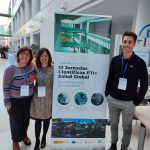
During 20-22 of November 2023, the III PTI+Global Health Scientific Conference were held in the Center for Human and Social Sciences, in Madrid. In March 2020, the CSIC (Spanish National Research Council) launched the the Interdisciplinary Thematic Platform (PTI) on Global Health to bring together research teams and enhance knowledge about the new coronavirus SARS-CoV-2, which caused the pandemic. The PTI has mobilized and coordinates more than 400 scientists from 50 CSIC institutes in all areas. The annual PTI+Global Health Scientific Conference are a meeting space where the results of the research carried out in the laboratories can be shown[...]
08 Nov
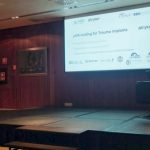
The annual conference of the scientific áreas of CIBER (the most important Centre for Biomedical Research in Spain) are hotly awaited every year for the CIBER community as a foro to be updated about emerging key technologies and discuss about research lines and results, find new opportunities to collaborate and join efforts towards common objectives. Moreover, this year, the Annual Conference of CIBER-BBN (Bioengineering, Biomaterials and Nanomedicine) has been organized as a collective event scheme together with the scientific area of CIBEREHD (Digestive and Liver Diseases). Both areas have already shared experiences of collaborative projects, demonstrating the complementarity of their fields.[...]
20 Oct

Today, Bonnie Bassler, Jeffrey Gordon, and Peter Greenberg are receiving the Princess of Asturias Award for their contribution to the knowledge of the role of the human microbiome and the bacteria Quorum Sensing. Targeting Quorum Sensing allows understanding of bacteria behaviour and pathogenesis, but also developing new therapeutic and diagnostic strategies for infectious diseases. Bonnie Bassler has shown how small chemical signals are involved in such a communication process. Peter Greenberg was one of the first scientists who assigned the term Quorum Sensing (QS) to such a sophisticated system used by bacteria to communicate and synchronize behavior. He was involved[...]
